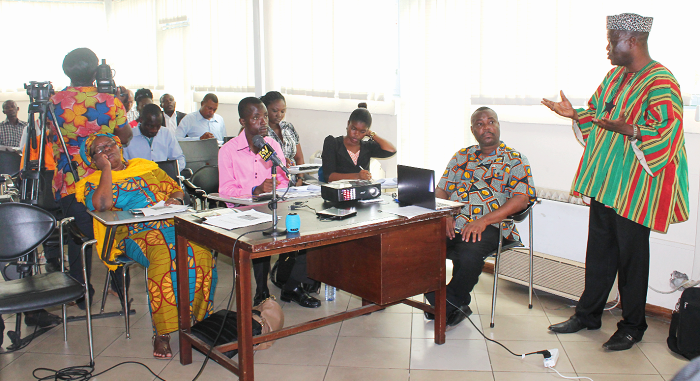
Include protection of local seeds in campaign message -- CSOs appeal to politicians
Three civil society organisations (CSOs) in the country have called on politicians to make the protection of local seeds for farming a campaign message as a sign of their readiness to forestall the predominance of foreign seeds.
Advertisement
The organisations are the Alliance for Food Sovereignty for Africa, the Centre for Indigenous Knowledge and Organisational Development (CIKOD) and the Peasant Farmers Association of Ghana.
“We want our parliamentarians to assure us that if we vote for them, they will resist any external pressure to ratify the Arusha African Regional Intellectual Property Organisation (ARIPO) protocol,” the Chairman of the Alliance for Food Sovereignty for Africa, Mr Ben Guri, said in an interview.
What is Arusha protocol?
The ARIPO is an inter-governmental organisation for cooperation among African states in patent and other intellectual property matters.
The Arusha Protocol for the Protection of New Varieties of Plants was adopted by ARIPO member states in July 2015. The Protocol is modelled on the 1991 Act of the International Union for the Protection of New Varieties of Plants (UPOV 1991).
Ratification
Mr Guri said the attention of the CSOs had shifted to the Arusha protocol “because Ghana is one of the few countries that have signed the protocol, which was now awaiting ratification by Parliament.”
He said it was important for parliamentarians to assure their constituents of their determination to protect local seeds so that the constituents in turn could hold parliamentarians accountable if eventually the protocol was agreed on.
Mr Guri said the CSOs were denied participation in the negotiation process but were invited only to participate in the signing process, “giving us no room to make any suggestions.”
He said the Arusha protocol superceded the Plant Breeders Bill, which was the local version of the ARIPO protocol, added that the protocol and had rendered the bill ineffective.
“This means the Plant Breeders Bill we are still struggling with is no more valid. Our Parliament will only have to ratify the ARIPO protocol for it to take effect in Ghana.
“We think that we should have a seed law that gives farmers some right to be allowed to select how traditionalists want farming to proceed,” Mr Guri said.
Multi-National companies
The Deputy Executive Director of CIKOD, Mr Wilberforce Laate, said the Arusha protocol was designed to protect the interest of the multinational companies and scientists who had seen Africa as a fertile ground for business.
He said the protocol did not involve farmers and the CSOs, “and we think that if this is for farmers then they ought to be part in taking decisions.’
He stressed that the law was not protective of farmers.
Mr Laate said it must not be misunderstood to mean that “we do not want any law to regulate the industry, but we need to control seeds produced locally,” and not be forced to accept seeds from somewhere for use by farmers here.
“We are educating farmers on the dangers of using genetically modified seeds,” he added.
According to Mr Laate, many farmers were currently alert of the type of seeds presented to them.
Peasant farmers
The Programmes Officer of the Peasant Farmers Association of Ghana, Mr Charles Kwowe Nyaaba, said the association wanted the issue of the ARIPO bill to be made a campaign message by politicians.
He said the association was monitoring and analysing pronouncements made by politicians and was also studying political party manifestoes to find out which party had the interest of peasant farmers at heart.
Mr Nyaaba said their findings would inform them as to which political party peasant farmers should vote for in the upcoming general election.
He said peasant farmers were waiting patiently for parliamentarians to return to Parliament so that they could engage them to enable them to make informed input in discussions before the bill was passed.




